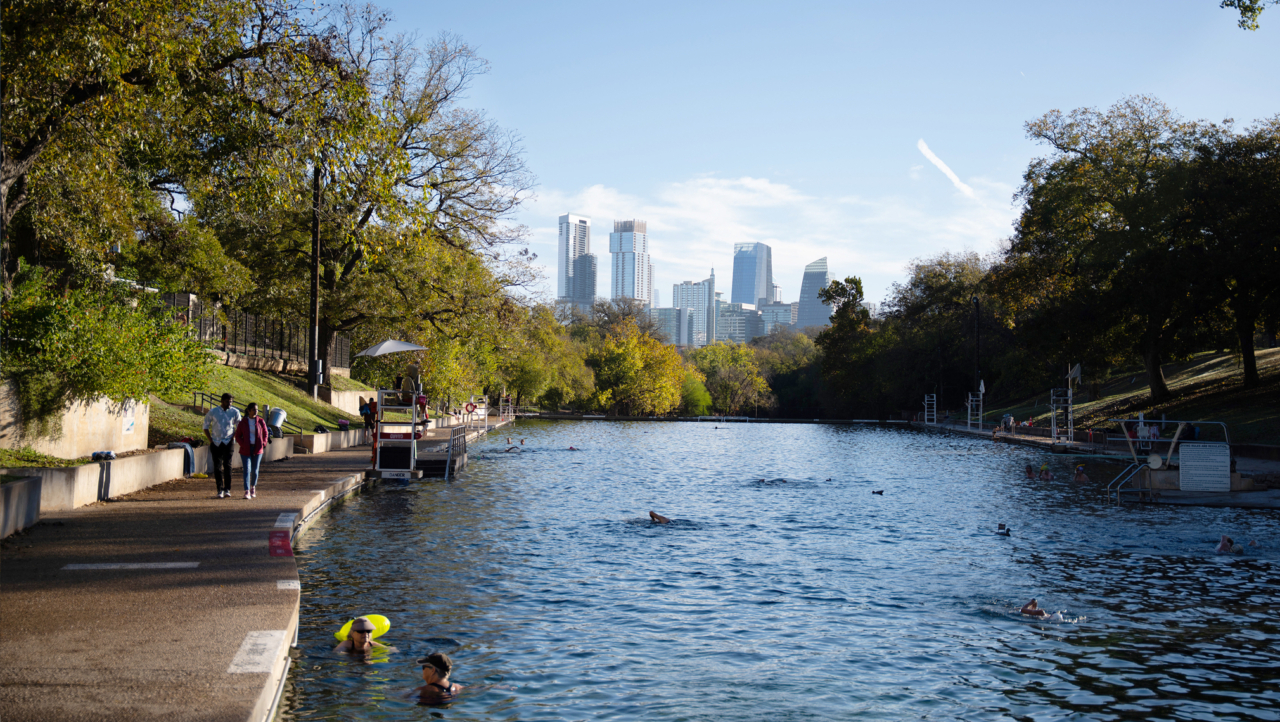Top Questions to Ask When Viewing an Apartment


Written by Shawnna Stiver on September 17, 2025
Reviewed by Chrissy Tran, Edited by Alycia Lucio
Apartment tours can move fast, but knowing the right questions to ask when viewing an apartment helps ensure you don’t miss something important. Whether you’re a first-time renter or a seasoned mover, asking detailed questions can help you make an informed decision when you’re comparing rental options and avoid surprises after move-in.
Here are some the key areas you’ll want to ask questions about when viewing an apartment:
- Lease terms
- Rent and utilities
- Upfront costs and fees
- Credit and income requirements
- Modifications and inclusions
- Maintenance
- Security
- Pet policies
- Parking
- Amenities
- Renters insurance
- Community
- Neighborhood
Schedule your next virtual or in-person apartment tour through Zillow.
Lease terms
What is your application process?
Ask how long the application typically takes, what documents are needed, and whether there’s a fee. According to a 2024 Zillow study, the median application fee in 2024 was $50, and most renters submit both an online and in-person application before landing their home. Understanding the process up front helps you plan and avoid delays.
What are the leasing terms?
A 12-month lease is the most common, but it’s not your only option. Some landlords offer month-to-month or shorter fixed-term leases (like 6 or 9 months), which can be great if you’re relocating, exploring a new city, or anticipating life changes. Just note: the more flexible the lease, the higher the rent tends to be.
How soon can I move in?
Is the unit available immediately? Check with the landlord to see if there’s a waiting period due to current tenants, renovations, or lease processing.
Can I add a roommate to my lease later on?
If there’s a chance you’ll add a partner or friend to the lease, ask whether roommates are allowed and what approval process is required. Some landlords may run a background check or require a new lease addendum.
How far in advance should I give notice to move out?
Most leases require 30–60 days’ notice before moving out. Missing this deadline could mean paying extra rent or losing your security deposit.
What if I need to break my lease early?
Life happens — jobs change, relationships shift, and plans evolve. If you need to break your lease early, know the penalties, required notice period, and whether subletting is an option. Two in five recent renters have had disagreements with landlords, and 16% cited move-out charges as a reason, so getting clarity on how much it costs to break your lease is important.
Am I allowed to sublet or sublease my apartment?
If there’s any chance you’ll need to move before your lease ends, subletting or subleasing could help you avoid costly penalties. Ask if it’s permitted, and what the process is for approval.
Rent and utilities
How much is rent?
It’s the most important question, but don’t stop at just the number. Ask if there are different rates for lease lengths, whether rent varies by floor or view, and if any specials or discounts are available.
Before your tour, it’s smart to know how much rent you can comfortably afford. Use Zillow’s free rent affordability calculator to get a personalized estimate based on your income. You can also check current Zillow rental listings to see prices in the area, so you’ll know whether the rent seems fair for the neighborhood and amenities.
How do I pay rent?
Clarify where, how, and when rent is due. Also, ask if there's a grace period for paying rent. Some landlords offer online portals or apps, while others still require checks. Be sure to clarify whether there are processing fees or discounts for autopay. If they don’t offer online rent payments, see if they’re willing to use Zillow’s online Rent Payment tool.
Does the rent ever fluctuate? If so, when and by how much?
While your rent is typically locked during the lease, many landlords raise rates when it’s time to renew. Ask about historical rent increases or if there’s a cap on annual adjustments.
Are utilities, parking, or amenities included in rent?
A majority (58%) of renters pay at least one extra monthly fee, most commonly for utilities like water, trash, or recycling. Does the rent cover anything beyond the space itself, like utilities, parking, or amenities? Some listings bundle in Internet or water, while others keep utilities separate. Knowing whether utilities are included helps you compare apples to apples.
What utility companies service the area?
Knowing your service providers helps you set up accounts quickly and estimate costs. This is especially helpful if you’re moving from out of state or are unfamiliar with local companies.
What are the average utility costs?
Ask for a ballpark range of average utility costs based on unit size and season. This helps you get a clearer picture of your total monthly expenses.
Upfront costs and fees
Do you require the first and last month’s rent as an upfront cost?
Most renters (75%) pay the first month’s rent before moving in, but only 25% are asked to pay last month upfront. Get clarity in advance — along with specific details about when the first and last month’s rent is due — so you can plan your budget.
How much is the security deposit?
The typical security deposit in 2024 was $750 (among renters that paid one), but deposit amounts may vary by market and property. Ask how much you need to deposit before moving in and when the deposit is refundable and what conditions must be met to get it back.
Are there any move-in fees?
Move-in fees are separate from deposits and usually cover administrative tasks or building preparation. Ask what move-in fees are required and whether they’re refundable.
Is there an application fee to apply?
Confirm how much the application will cost and whether the fee covers a background check and credit check. The national median application fee is $50, but this amount varies by property and local laws. If you’re renting with someone else, the landlord or property manager may also require each adult to complete their own rental application and pay the same fee.
Do you charge late fees when paying rent?
If you ever miss a rent deadline, how much will it cost? Some landlords charge flat fees, while others charge a percentage of your rent. It’s smart to know the policy upfront.
Credit and income requirements
Are there specific credit and income requirements I should know about?
Many landlords require a monthly income that’s two or three times the rent. Some also set a minimum credit score. If you’re unsure you’ll qualify, knowing before you apply can save you the cost of the rental application fee or allow you to prepare alternative documentation to meet their qualifications.
Do I need a co-signer or guarantor?
If your credit or income is borderline, a co-signer might be required. Familiarize yourself with what’s required of either a co-signer or guarantor so you can choose the right candidate.
Modifications and inclusions
What appliances are included in my unit?
Everyday appliances, such as a refrigerator and oven, are usually included, but not always. If you rely on things like a dishwasher, microwave, or in-unit laundry, double-check what’s provided.
What type of changes can I make to my apartment?
Some leases allow for small cosmetic changes, while others don’t allow even picture-hanging. Ask what’s considered normal wear and tear and what you’ll be expected to reverse when moving out.
Maintenance
How do I file a maintenance request, and who makes the repairs?
Maintenance issues may arise, especially if you plan on occupying the unit for a long time. When deciding what questions to ask when viewing an apartment, maintenance should be on your list. Check whether there’s an online system, how long repairs typically take, and whether maintenance is done in-house or by contractors.
What types of repairs are covered under general maintenance?
Routine repairs, like leaky faucets or broken blinds, are usually covered, but some lease agreements expect tenants to handle small fixes. Make sure you understand the expectations and what may be considered damage you’re responsible for.
How do you handle emergency maintenance requests and repairs?
When your heat goes out in winter or there’s a water leak, time matters. Ask if there’s 24/7 emergency support and how to get in touch.
Does maintenance perform routine pest control?
Pest prevention shows good property management. Know how often it’s done and whether it’s included in rent.
Security
What type of security do you provide?
Security measures can range from gated access and cameras to basic locks. For peace of mind, you should know what’s in place and whether there’s on-site staff after hours.
Do you consider this a safe community?
You may get a generic answer, but it’s still worth asking. Pair this question with your own research on local crime stats and neighborhood reviews.
Under what circumstances will you need to enter the apartment?
Landlords typically need to give 24 hours’ notice unless it’s an emergency. Ask how notice is delivered (e.g., written, text, email) and who may enter the unit.
Pet policies
What is your pet policy?
A large number of renters agree that pets are part of the family, with 44% passing on a property that doesn’t allow them. Does the landlord or property manager have breed or size restrictions, species rules (e.g., cats vs. reptiles), or a limit on the number of pets you can have? Get clarity to make sure your rental will meet your pet-friendly needs.
Is there a separate deposit for having a pet?
If it’s a pet-friendly rental, some may charge a one-time deposit, while others charge non-refundable pet fees. Be sure to verify what’s required and whether it’s refundable at move-out.
Do you charge a monthly pet fee?
“Pet rent” is common these days. The cost may range from $25 to $100 per pet per month, so it can add up quickly. Knowing the cost ahead of time can help you plan for the additional fee in your rental budget.
What kind of documentation do you require for pets?
You may be asked to provide proof of vaccinations or spay/neuter status. Service and emotional support animals are not considered pets under fair housing laws and require different documentation.
Parking
What type of parking do you offer?
Is parking assigned, covered, or on a first-come, first-served basis? Clarify the setup and whether it’s included in your rent or is an additional charge.
Are garages available for rent?
If you want extra protection for your vehicle, inquire about garage availability and monthly fees.
Do you offer storage space for rent?
On-site storage can be a game changer for seasonal gear, bikes, or bulkier items. Ask about availability and cost.
Amenities
What amenities are included?
About a fifth of recent renters place high importance on amenities like gyms, pet areas, or business centers. Ask what’s on-site and which features are included in your rent.
Do I pay anything extra to use the on-site amenities?
Some buildings charge extra for gym access or rooftop lounges. Knowing the cost upfront helps you avoid hidden fees.
Can I rent any common areas?
If you love hosting, ask whether you can reserve spaces like a community room or rooftop and whether there’s a fee or deposit.
Renters insurance
Do you require renters insurance?
Only about a third of renters (32%) say their landlord requires renters insurance, but having a policy can be smart. Ask what coverage is needed and whether proof is required before move-in. You can get coverage through Zillow Insurance Services in less than five minutes for as low as $8.33 a month.
Community
What types of activities does the community promote?
This is a good way to understand the building's culture and whether it skews toward families, young professionals, retirees, or students.
Are there quiet hours here?
Many buildings enforce quiet hours to maintain a peaceful shared living environment. Ask about the policy and how it may be enforced.
How does a person submit a noise complaint?
Disputes with neighbors can happen. Knowing how to report issues can help you feel more confident about your comfort and safety.
Is there a guest policy?
Ask whether there are limits on how long guests can stay or if you need to register them with management.
Where do guests park?
Even if you have a dedicated parking space, guests may not. Know whether there’s a designated area for guests or nearby street parking so you can avoid a guest’s vehicle being towed.
Are there any plans to make updates to the community?
Renovations can be exciting or disruptive. Find out if any major projects are planned and how long they’ll take.
Would you want to live here?
This question might catch your potential landlord off guard, but it can reveal a lot. A thoughtful answer could help you decide if the property is truly a good fit.
Neighborhood
What type of local amenities are around here?
Recent renters considered neighborhood walkability (55%) and commute (56%) as highly important. If the landlord can’t share specifics, research local grocery stores, gyms, restaurants, and more to get a feel for what your day-to-day could look like living here.
How is the general noise level in the neighborhood?
Even if the building is quiet, construction, traffic, or nightlife nearby can make a difference (and not necessarily in a good way). Having insight into what current tenants have experienced could be an important deal-breaker to know before you apply.
Is there public transportation nearby?
Access to buses or trains — even if you have a car to drive — adds convenience and flexibility, especially for commuting or running errands.
What do you like about the neighborhood?
A personal perspective can be more revealing than a brochure. Ask what long-time tenants or staff appreciate most; it’s one of the more personal questions to ask when viewing an apartment that can reveal if the location fits your lifestyle.
Final thoughts when viewing an apartment
Apartment hunting can feel overwhelming, but having a solid list of questions to ask when viewing an apartment puts you in control. Don’t forget, you can schedule Rental Tours through Zillow to compare your top picks. Book your next tour with us today.
Find an apartment you’ll love on Zillow
With Zillions of up-to-date listings and filters for your must-haves, it's easy to find your perfect apartment on Zillow Rentals.
Search rentals


